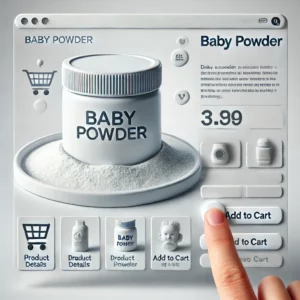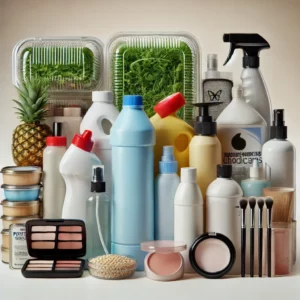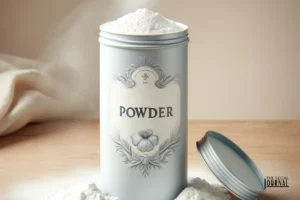New Rule Aims to Enhance Consumer Safety Amid Ongoing Litigation
The FDA has proposed new regulations requiring cosmetic companies to adopt stricter testing methods to ensure talc-based products are asbestos-free. The proposed rule follows years of controversy and lawsuits, including claims that talc-containing baby powder caused cancer. While FDA-sponsored testing since 2021 found no asbestos in over 150 cosmetic samples, Congress mandated the new rule to address consumer concerns. The rule would apply to personal care products such as makeup and baby powder if approved.
5 Key Points
• The FDA proposed new asbestos testing standards for talc-based cosmetics on December 26, 2024.
• Congress mandated the new rule in 2023 to address concerns about asbestos contamination.
• Over 150 FDA-tested cosmetic samples since 2021 showed no asbestos.
• Johnson & Johnson faces lawsuits alleging talc baby powder caused cancer.
• The new rule aims to ensure consumer safety and rebuild trust in talc-based products.
FDA Proposes Enhanced Testing for Talc-Based Cosmetics
On December 26, 2024, the Food and Drug Administration proposed a rule requiring cosmetic companies to adopt more rigorous testing methods to ensure talc-based products are free from asbestos. The initiative, mandated by Congress in 2023, aims to address long-standing concerns about the potential contamination of talc, a mineral widely used in personal care products such as makeup and baby powder. The FDA’s proposal follows years of lawsuits and public scrutiny surrounding the safety of talc-based products.
Dr. Linda Katz, director of the FDA’s Office of Cosmetics and Colors, emphasized the agency’s commitment to consumer safety. “We believe that the proposed testing techniques are appropriate methods to detect asbestos to help ensure the safety of talc-containing cosmetic products,” she said.
Testing Results and Ongoing Concerns
Despite the controversies, FDA-sponsored testing since 2021 found no asbestos in over 150 cosmetic samples. Talc, a mineral used for its ability to absorb moisture and improve the texture of cosmetics, is sometimes mined near asbestos deposits, leading to the risk of contamination. However, the FDA’s findings have not wholly alleviated public concerns, especially given the ongoing lawsuits against Johnson & Johnson and other companies.
The American Cancer Society notes that while the potential link between talc and cancer remains inconclusive, “it is likely to be very small if a risk exists.” This underscores the difficulty of establishing a definitive link between talc and health issues, particularly for rare conditions like ovarian cancer.
Talcum Powder MDL: A Massive Legal Effort
The proposed rule follows widespread litigation, including tens of thousands of lawsuits against Johnson & Johnson. These lawsuits are part of multidistrict litigation (MDL), a legal process consolidating similar cases filed across federal courts. Plaintiffs in the talcum powder MDL allege that prolonged use of talc-based products, like Johnson & Johnson’s baby powder, caused ovarian cancer or mesothelioma.
The MDL allows a single federal court to manage the pretrial phase, ensuring consistency in gathering and reviewing evidence. While Johnson & Johnson has consistently denied that its talc products cause cancer, the company’s subsidiary has proposed an $8 billion settlement to resolve these cases. However, the settlement plan, which involves the subsidiary declaring bankruptcy, faces significant legal challenges, including opposition from the Department of Justice.
Johnson & Johnson removed talc-based baby powder from U.S. shelves in 2020 and discontinued it internationally in 2023. Despite the lawsuits and public criticism, the company maintains that decades of testing demonstrate the safety of its products.
Addressing Consumer Concerns and Restoring Trust
The FDA’s proposal represents a significant step in rebuilding public confidence in talc-based cosmetics. By implementing stricter asbestos testing standards, the agency seeks to reassure consumers about the safety of products they use daily. However, even with enhanced testing, many consumers remain cautious about talc-containing products due to ongoing litigation and historical concerns about asbestos contamination.
The proposed rule reflects increasing public demand for transparency and stricter safety measures in personal care products. These measures could serve as a model for improving safety standards across the cosmetics industry.
FAQ
Q: Am I eligible to file a lawsuit if I developed cancer from talcum powder?
A: If you or a loved one were diagnosed with cancer linked to talcum powder use, legal options may be available. Contact our legal experts to learn about your rights and start a free, confidential case review.
Q: What is the FDA’s new proposal regarding talc-based cosmetics?
A: The FDA has proposed a rule requiring cosmetic companies to implement stricter testing methods to ensure that talc-based products, such as makeup and baby powder, are free from asbestos contamination.
Q: Why is asbestos a concern in talc-based cosmetics?
A: Talc is often mined near asbestos deposits, creating a risk of cross-contamination. Asbestos is a known carcinogen, and its presence in personal care products has raised health and safety concerns.
Q: What is the talcum powder MDL?
A: The talcum powder MDL (Multidistrict Litigation) consolidates thousands of lawsuits claiming that prolonged use of talc-based products, like Johnson & Johnson’s baby powder, caused cancer. This process allows for coordinated pretrial proceedings under one federal court.
Q: How has Johnson & Johnson responded to the lawsuits?
A: Johnson & Johnson denies that its talc-based products are unsafe. The company has proposed an $8 billion settlement to resolve lawsuits, though the plan has faced legal challenges. J&J removed talc-based baby powder from U.S. shelves in 2020 and discontinued it globally in 2023.
Q: What have FDA tests found about asbestos in cosmetics?
A: Since 2021, the FDA has tested over 150 cosmetic samples and found no asbestos. However, the proposed rule aims to strengthen consumer trust by requiring more rigorous testing methods.
Citations
Perrone, M. (2024, December 26). FDA proposes new testing rules to ensure cosmetics are asbestos-free. ABC News. https://abcnews.go.com/Business/wireStory/fda-proposes-new-testing-rules-ensure-cosmetics-asbestos-117129857








